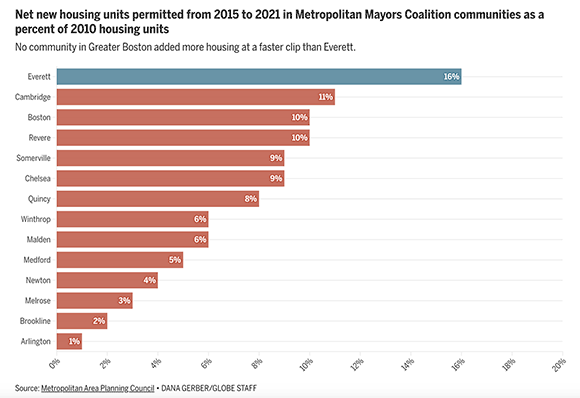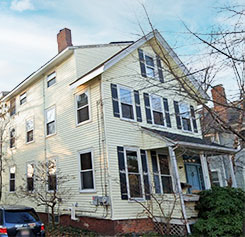(The opinions and views expressed in the commentaries and letters to the Editor of The Somerville Times belong solely to the authors and do not reflect the views or opinions of The Somerville Times, its staff or publishers)

By State Senator Pat Jehlen
This is my second piece about rent stabilization. Here’s the first one.
Channel 25 ran a story about the conflict between renters and homebuyers vs. investors. They “found when investors use limited liability companies or LLCs to purchase properties – they can be hard to track.” Rep. Uyterhoeven’s bill, H3566, would allow identification of the owners of LLCs.
Doug Quattrochi of MassLandlords doubted the information on increased evictions in the newsletter. I unfortunately have lost track of the citation. However, the Trial Court’s dashboard indicates that in Middlesex County there were 914 evictions in 2021, 1298 in 2022, and 2148 in 2023. So more than double in past 2 years.
I pointed out that Somerville has built/permitted over 2500 new units. The Globe just reported that from 2015-2021, all three cities in our district increased their housing stock significantly in 5 recent years; Cambridge by 11%, Somerville by 9%, and Medford by 5%.

Rent Stabilization doesn’t stop new buildings

Thirty-two economists, including several from Massachusetts recently wrote, “There is substantial empirical evidence that rent regulation policies do not limit new construction, nor the overall supply of housing. A 2007 study of rent control analyzed 76 cities in New Jersey with varying rent stabilization laws, controlling for population, demographics, income, and renter-occupied units, finding little to no statistically significant effect of moderate rent controls on new construction. Other studies have found similar results. When rent control was repealed in Massachusetts, there was no corresponding increase in housing supply, highlighting again a lack of causal relationship between rent regulations and housing supply.”
During rent control, officers at two Somerville banks told me that rent control made investment in new construction more profitable than buying existing housing. Sure enough, during the three years after rent control began, investment in new multi-family housing increased by 55% in cities with rent control and only 12% in other communities in the Boston area. (Somerville Community News, June 1974)
Rent stabilization can help homebuyers
 Would-be homeowners in Somerville are regularly outbid by investors, who raise rents and/or turn workforce housing into luxury condos.
Would-be homeowners in Somerville are regularly outbid by investors, who raise rents and/or turn workforce housing into luxury condos.
My husband and I were able to buy our first home because of rent control. When Somerville adopted rent control in 1971, some investors chose to sell rather than having their rents rolled back 6 months. That gave us and other young families the chance to buy our first, “fixer-up” homes.
Rent control can reduce the advantage large investors have over homebuyers. It can increase the incentive to invest in new developments, some in other MBTA communities, instead of purchasing and raising prices in naturally-occurring affordable housing.
Rapid rent increases require higher wages or higher subsidies
As the price of housing increases much faster than wages, many essential workers can’t afford to live near their jobs. Renting a 2-bedroom apartment in Greater Boston requires a $40/hour wage, double the pay of home care workers and other essential workers.
We could continue to increase the minimum wage, which would help those at the bottom of the pay scale, but it would be hard to increase it as fast as housing costs.
We could increase the pay of direct care workers, which would mean more disabled and older people would get the care they need. That would cost a lot of money in a constrained budget.
Or we could increase housing subsidies. Providing vouchers to all eligible renters would cost $3.2 billion a year. The need for subsidies only grows as rents continue to rise and increases continue to far outpace wages. Samuel Stein and Oksana Mironova of the Community Service Society testified last year that, “Even though rent regulation is not a subsidy program, it helps stretch public subsidy dollars. By preventing rent inflation, it makes one-time emergency rental assistance grants and housing vouchers more efficient. As stated by sociologist Matthew Desmond, who advocates for a universal voucher program, ‘expanding housing vouchers without stabilizing rent would be asking taxpayers to subsidize landlords’ profits.’”
I have a lot more thoughts about housing and am glad to hear yours! But taking a break for other topics.














Replace “or” with “and” and do all three.